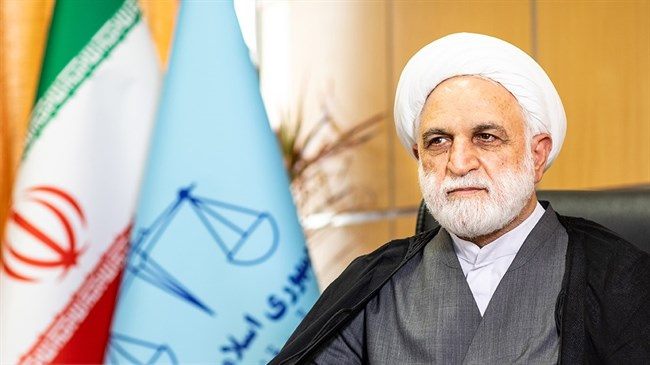Leader appoints Mohseni-Ejei as Iran’s Judiciary chief

According to a decree issued by the Leader on Thursday, Mohseni-Ejei will replace Seyyed Ebrahim Raeisi, who served in the position for over two years before being elected as Iran’s eighth president.
Before being named head of the Judiciary, Mohseni-Ejei was Raeisi’s deputy and seen as the second-highest official in the country’s judicial system. He served as minister of intelligence from 2005 to July 2009, under ex-president Mahmoud Ahmadinejad. He has also held a number of governmental posts since 1984, Press TV reported.
Raeisi is scheduled to be sworn in as president in early August after winning the June 18 presidential election by a landslide.
The president-elect had asked, in a letter on Wednesday, for the Leader’s permission to concentrate on forming his government. He also requested Ayatollah Khamenei to take a decision in his sole discretion regarding a new Judiciary chief.
The Leader, in his decree, thanked Raeisi for his “valuable services” as Judiciary chief and his “honorable record” in laying a strong foundation at the judicial branch of the Iranian government.
In the decree addressed to Mohseni-Ejei, Ayatollah Khamenei said: “I appoint you as the head of the Judiciary Branch, on the basis of Article 157 of the Constitution, since, besides judicial competence, you have precious experience and a deep understanding of judicial matters.
“I expect you to pay serious attention to the fundamental responsibilities of the Judiciary as specified in the Constitution: Responsibilities such as administering justice, asserting the rights of the public, safeguarding the liberties which are legal, supervising the execution of the law, preventing crimes and combating corruption in a decisive manner.”
He also urged Mohseni-Ejei to continue the transformational approach at the Judiciary with special care, pave the way for the usage of new technologies and guarantee people’s easy and free access to judicial services.
Ayatollah Khamenei called on the new Judiciary chief to put efficient and virtuous personnel in charge of responsibilities at the branch under his watch and train competent managers.
The services of virtuous judges should be honored and their dignity must be preserved while offenders, who are few in number, should be dealt with decisively, the Leader said, adding that being present among people has many blessings.
“I ask God Almighty for the success of your Excellency and your colleagues, and I hope that your services will please God and the people,” he said.
Source: Iran Daily

